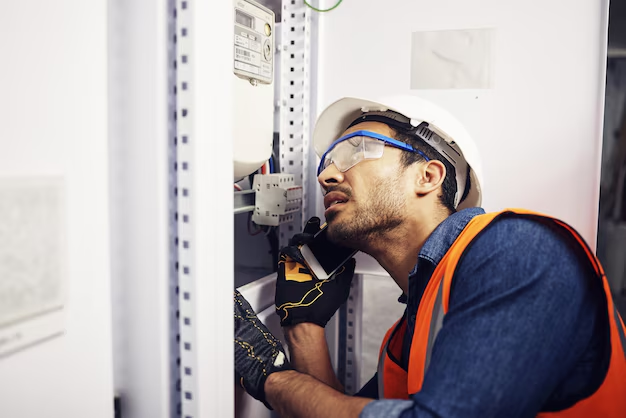Discover the Essential Work of an Electrician
Electricity powers the modern world, swiftly lighting up homes, fueling industries, and keeping the digital universe alive. At the heart of this electrified ecosystem lies an often overlooked but vital profession: the electrician. While some might think of electricians simply as the individuals who fix flickering lights or faulty outlets, their work is far more comprehensive and complex. So, what does an electrician really do?
The Diverse Role of Electricians
Electricians are skilled tradespeople specializing in designing, installing, maintaining, and repairing electrical systems. Here's a look at the diverse nature of their responsibilities:
Installation and Maintenance: Electricians work on electrical wiring systems in residential, commercial, and industrial settings. Whether it's a new home, office building, or factory floor, they ensure everything from lights to complex machinery operates safely and efficiently.
Cabling and Wiring: Beyond fixtures and outlets, electricians handle the maze of wires that power a building. They install wiring during new constructions and troubleshoot problems in existing ones, ensuring compliance with safety standards.
System Design and Upgrades: Many electricians work on larger projects that require system design for new construction or upgrading older systems to meet modern technological needs.
Troubleshooting and Repairs: When the unexpected happens, electricians diagnose issues and make necessary repairs. This could involve anything from replacing circuit breakers to overhauling electrical panels to eliminate looming hazards.
Installation of Specialized Equipment: Electricians often handle the setup of specialized equipment such as home automation systems, security cameras, and renewable energy sources like solar panels.
Training and Expertise
Becoming an electrician requires a blend of formal education and extensive hands-on experience. Many electricians undergo a combination of vocational training, apprenticeships, and continuous learning through certifications to keep up with industry advancements. The knowledge of building codes, electrical theories, and safety practices underscores their work, making them indispensable in maintaining a smoothly operating society.
Exploring Financial and Educational Opportunities
Given the critical role electricians play, there's a strong push toward training more individuals in this skilled trade. For those interested in pursuing a career as an electrician, several educational grants and programs are available to lessen the financial burden of training. Many states offer financial aid and scholarships specifically for vocational or trade schools, recognizing the essential nature of acquiring these skills.
Furthermore, government aid programs provide avenues to attain relevant certifications and degrees. For those already practicing, debt relief options may be accessible to manage any existing financial obligations from educational loans. Here’s how you can benefit:
Educational Grants: Institutions often provide grants specifically for training in trades, minimizing the cost of becoming a certified electrician.
Government Assistance: Federal and state programs are available to support those entering trade schools, with some countries offering incentives for individuals pursuing in-demand occupations like electrical work.
Credit Solutions and Debt Relief: Programs tailored toward managing educational loans can ease the transition for new electricians, allowing them to focus on their craft rather than financial strain.
With a steady demand and an array of continuous learning possibilities, a career as an electrician not only promises job security but a rewarding path for those inclined toward working with their hands and solving practical problems.
Your Path to a Brighter Future
🔌 Educational Grants
- Vocational training scholarships
- Trade-specific grants available
🏛️ Government Aid Programs
- Federal funding for trade education
- State-specific incentives
💳 Credit and Debt Solutions
- Loan management programs
- Industry-specific financial assistance
The world relies on the expertise of electricians more than ever, making it a field full of opportunity and growth. Whether considering a foray into this essential industry or looking to support current electricians, exploring the financial and educational resources available can pave the way for a robust and enlightening career.

